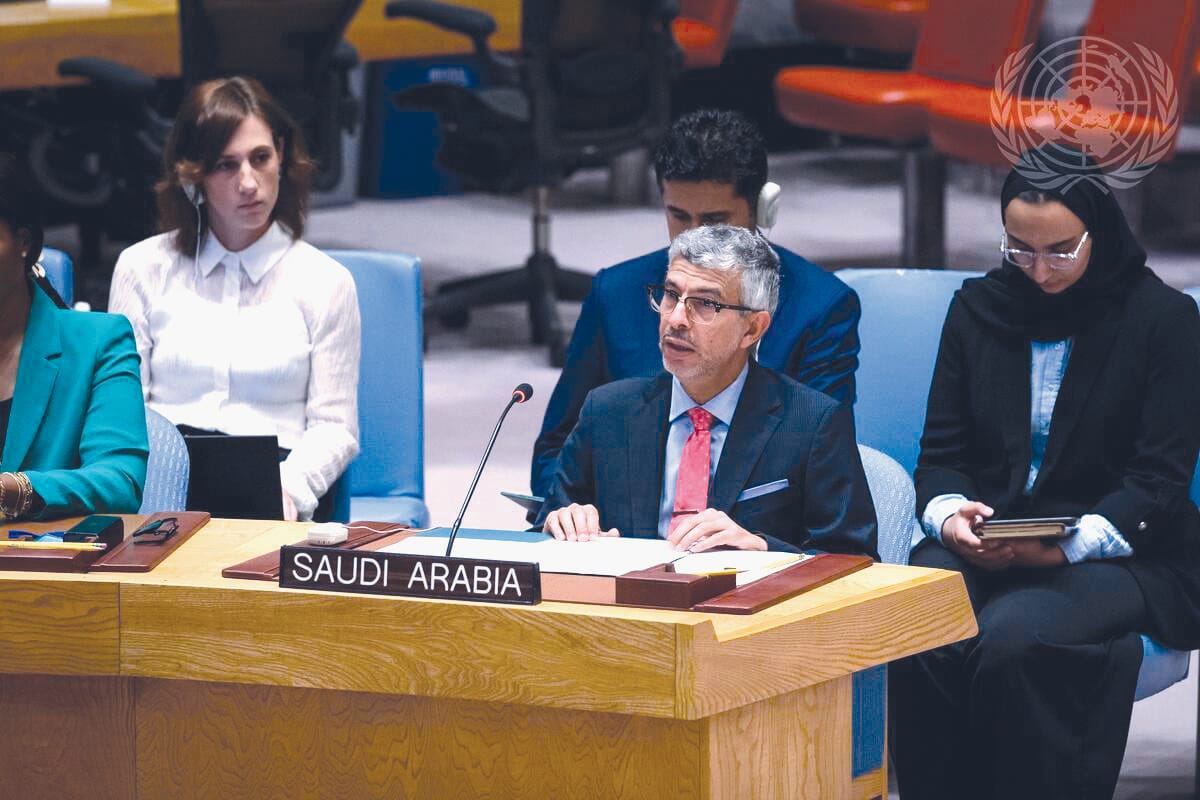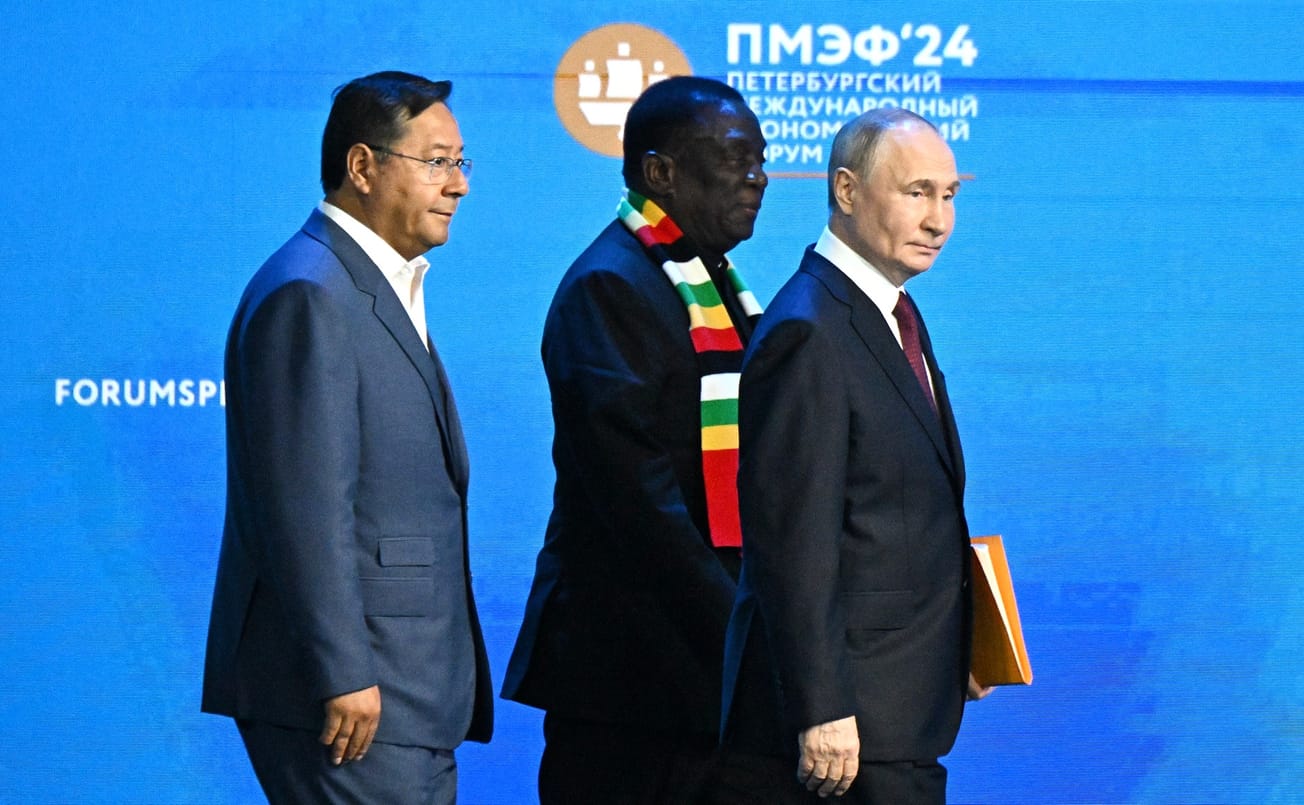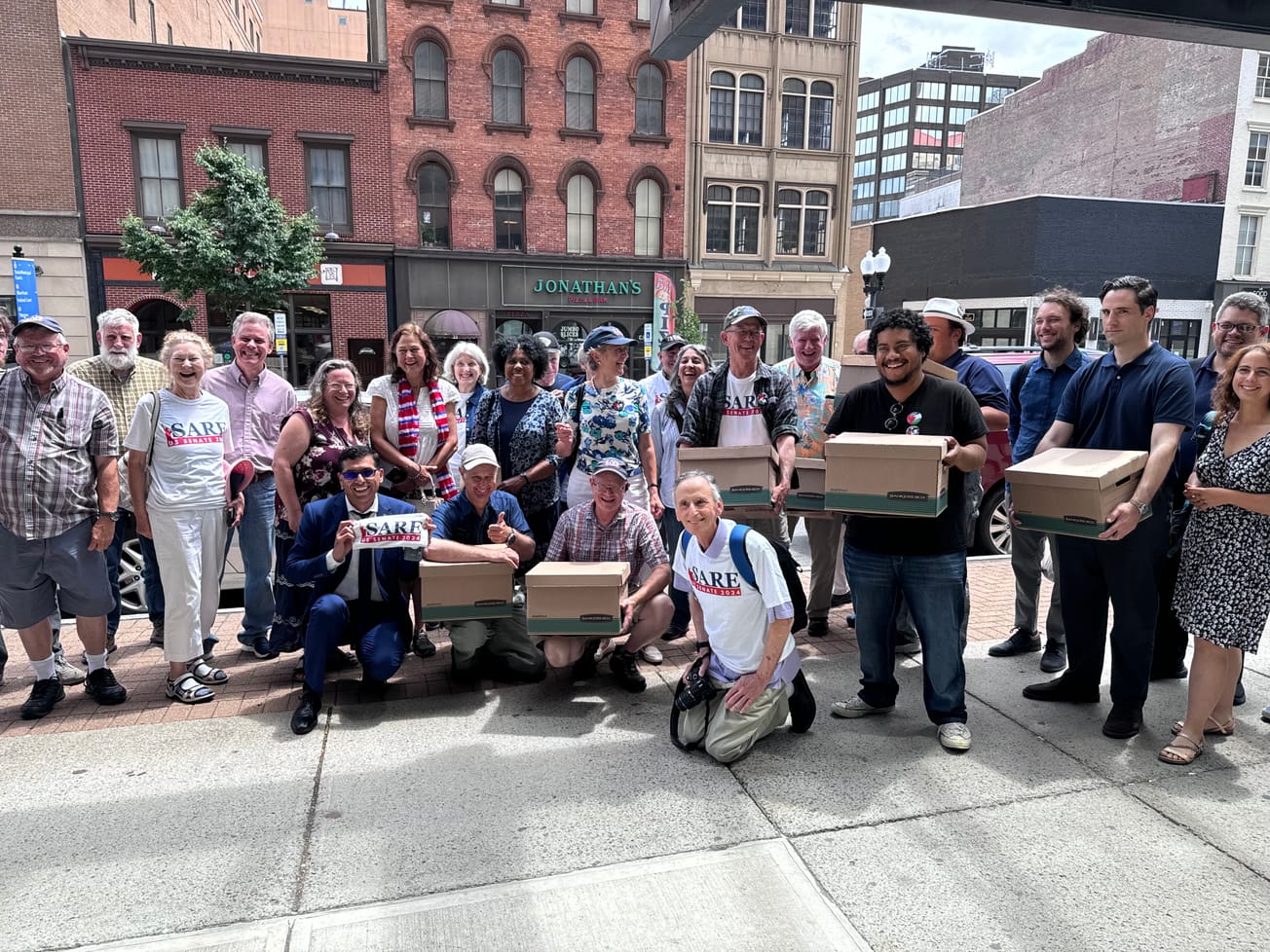State of Palestine membership at the United Nations may have been delayed, as often in regrettable periods of injustices, but as the arc of the moral universe which may be long but bends towards justice, the United Nations membership for the State of Palestine cannot be denied.
—H.E. Dr. Michael Imran Kanu, Ambassador and Permanent Representative of Sierra Leone to the United Nations
April 26—On April 18, a special session of the United Nations Security Council (UNSC) was convened, titled, “UN Security Council Open Debate on the Middle East and the Palestinian Question.” The purpose of the session was to debate and subsequently vote on a straightforward, simply-worded draft resolution, proposed by Algeria, in coordination with the League of Arab Nations, Organization of Islamic Cooperation, and the Non-Aligned Movement, on the issue of Palestinian membership in the United Nations. Based on a Sept. 23, 2011 application for Palestine’s admission to membership in the UN, the draft resolution states:
The Security Council,
Having examined the application of the State of Palestine for admission to the United Nations (S/2011/592),
Recommends to the General Assembly that the State of Palestine be admitted to membership in the United Nations.
After hours of debate, involving 41 speakers representing nations or international bodies, the UNSC, reflecting the will of the Global Majority, resoundingly raised its hand in favor of justice, with an overwhelming vote for official UN recognition of Palestine as a member state. Voting for the resolution were: Algeria, China, Russia, France, Slovenia, Malta, Guyana, Ecuador, Sierra Leone, Mozambique, Japan, and the Republic of Korea. Two nations, the UK and Switzerland, abstained. Tragically, as has been the case so many times before, the lone vote—or veto—against statehood came from the United States. As a permanent member of the Security Council, this effectively killed the resolution—for now. Needing only nine votes to pass, had the resolution not been vetoed, it would have gone to the UN General Assembly for final adjudication, needing a two-thirds majority to be passed. Given that Palestine is already recognized by 140 of the 193 UN member states, Palestine would have been guaranteed statehood.
‘The Middle East Is on a Precipice’
After the meeting was called to order by the Foreign Minister of Malta, Ian Borg, whose nation currently holds the rotating Presidency of the Security Council, UN Secretary-General António Guterres set the tone for the proceedings, beginning his remarks as follows:
The Middle East is on a precipice. Recent days have seen a perilous escalation—in words and deeds. One miscalculation, one miscommunication, one mistake, could lead to the unthinkable—a full-scale regional conflict that would be devastating for all involved—and for the rest of the world. This moment of maximum peril must be a time for maximum restraint.
That warning was echoed by many of the 40 speakers who followed. Great anger against the United States was clear, even though few mentioned the U.S. by name. They did not need to. Many speakers denounced the refusal of some to let the mechanisms of the multilateral system function, decrying that the UN Security Council and the International Court of Justice resolutions and orders are being ignored. Multiple speakers spoke of “man-made famine” and the “unconscionable” destruction in Gaza; the necessity of funding and defending UNRWA; and the extreme danger of a regional war because of the refusal to allow justice for the Palestinian people.
At least three nations—China, Palestine, and Spain—have called for convening an international peace conference for the region. China’s representative proposed that such a conference is needed to develop a timeline and road map for the realization of the two-state solution.
Spain’s Foreign Minister, José Manuel Albares, pushed hard for such a conference, in both his address to the UNSC and in a media stakeout at the close of that session. He said that the European Union, the League of Arab States, and the Organization of Islamic Cooperation, as well as 80 countries, have backed this proposal to advance the achievement of a two-state solution. He also declared Spain’s intention of joining 140 other countries that have already recognized Palestine as an independent state.
The EU Special Representative for the Middle East Peace Process, Sven Koopmans, proposed an intermediate step to get to an international peace conference, since not all the parties are agreed that it should be held. He encouraged the “friends and allies” of the parties to call for a preparatory conference, where, starting from the endpoint of the needed final peace agreement on a two-state solution, the conference would “reverse engineer” a path to get there. Nations would therefore contribute ideas on how to provide for Israel’s security, the requirements for a stable State of Palestine, and how to integrate both nations into the region, politically and economically, through cooperation on security, water, energy and climate change.
Brazilian Foreign Minister Mauro Vieira, after expressing Brazil’s grave concern over the breakdown of international law and its full support for Palestine’s recognition as a fully sovereign nation in the United Nations, concluded his remarks by introducing a crucial concept otherwise missing from the debate: economic development. He proposed:
Large-scale investment in economic development and infrastructure will be essential to ensure that Palestine achieves the long-term prosperity and stability its resilient people deserve. Sustainable development and economic empowerment are pillars of any lasting peace settlement.
The Saudi Ambassador to the UN, Abdulaziz Alwasil, spoke as a representative of the Arab League. Of note, he said that the Arab League nations will view with gratitude those nations who take the honorable position and vote for Palestinian statehood, but they “will not forget” those who vote against this resolution.

The United States Strikes Back
Indeed, history as a whole will never forget the treachery of the United States, which once again sabotaged a viable pathway to peace. Tens of thousands more innocent Palestinian civilians—the majority women and children—now face immediate death at the hands of Israeli Prime Minister Benjamin Netanyahu and the fascist, racist forces which dominate policy in his governing coalition. In his remarks during the debate, the Faust-like U.S. Alternate Representative to the UN, Robert Wood, in a mangled display of sophistry which would have made Thrasymachus himself cringe, sought to shift the debate away from the cause of justice for the Palestinian people, by demanding the UNSC instead condemn “Iran and its military partners” as the sole reason the region stands at the precipice of all-out war.
That gambit failed utterly. Speaker after speaker before and after Wood decried the Israeli government’s refusal to implement the provisions ordered by the International Court of Justice, and to stop what the Court ruled was plausibly “genocide” against the people of Gaza. Many also rebuked the United States’ declaration, also in defiance of international law, that the recently-passed UNSC Resolution 2728 mandating a ceasefire was “non-binding.”






